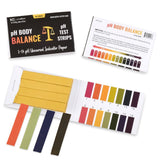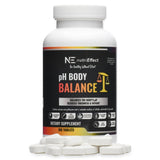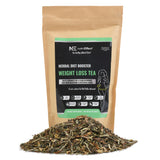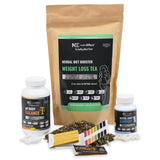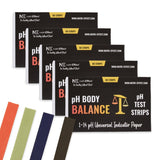Eating healthy doesn't have to be expensive. With some planning and savvy shopping strategies, you can enjoy a balanced and nutritious diet without overspending. Many people believe that eating well is only for those with deep pockets, but the truth is that anyone can make healthy, budget-friendly choices with a bit of know-how. This blog post will explore practical tips and tricks to help you eat nutritious meals without breaking the bank.

One of the most effective ways to save money while eating healthily is to plan your meals. Take some time each week to create a meal plan that includes breakfast, lunch, dinner, and snacks. Planning helps you avoid impulsive purchases and reduces food waste. Once you have your meal plan, make a shopping list of the ingredients you need. Stick to this list when grocery shopping to avoid buying unnecessary items.
Additionally, look for recipes that use similar ingredients to maximize your grocery haul. For example, if a recipe calls for spinach, find other meals that also use spinach to use up the entire bag and avoid waste.

Buying in bulk is often cheaper than individual packages, especially for staples like grains, beans, nuts, and seeds. Many grocery stores have bulk bins where you can buy just the amount you need, often at a lower price per pound than pre-packaged options. Whole grains like rice, oats, and quinoa are inexpensive, nutritious, and versatile ingredients that can be used in many dishes. Beans and lentils are also excellent sources of protein and fiber and are much cheaper than meat.
When possible, choose whole foods over processed or pre-packaged items. Whole foods such as fruits, vegetables, whole grains, and lean proteins are healthier and often more affordable than their processed counterparts. Processed foods tend to be more expensive due to added ingredients and packaging, and they usually contain higher levels of salt, sugar, and unhealthy fats.

Fruits and vegetables that are in season are generally more affordable and fresher than out-of-season produce. Seasonal produce is often sold at lower prices due to its abundance. Check out local farmers' markets, community-supported agriculture (CSA) programs, or grocery stores that carry locally sourced produce to find the best deals. Not only will you save money, but you'll also support local farmers and enjoy more flavorful fruits and vegetables.
If you have space, consider growing your vegetables or herbs at home. Even a small garden or a few pots on a windowsill can provide fresh, nutritious produce at a fraction of the cost of buying it at the store.

Frozen fruits and vegetables are often just as nutritious as fresh ones because they are frozen at their peak ripeness. They are usually less expensive, have a longer shelf life, and are available year-round. Stock up on frozen vegetables like broccoli, spinach, and peas, which can easily be added to soups, stews, or stir-fries. Frozen fruits like berries and mangoes are great for smoothies or topping yogurt or oatmeal.
Canned vegetables, beans, and fruits are also budget-friendly options but choose varieties that do not add salt or sugar. Rinse canned vegetables and beans under cold water to reduce sodium content. Canned tomatoes and beans are versatile ingredients in various healthy meals, such as soups, stews, and casseroles.

Cooking at home is one of the most cost-effective ways to eat nutritiously. When you prepare meals yourself, you have complete control over the ingredients and portion sizes, which helps you avoid unhealthy additives and reduce costs. Prepare meals in large batches and freeze leftovers for quick and easy meals later. Batch cooking saves time and reduces the temptation to order takeout or eat out, which can be more expensive and less healthy.
Get creative with leftovers to avoid food waste. For example, turn leftover roasted vegetables into a frittata or use them as a topping for a homemade pizza. Leftover rice can be transformed into a stir-fry or added to soups. Learning to repurpose leftovers into new meals can help stretch your food budget.

Meat can be one of the most expensive items on your grocery list. Beyond the cost, studies show that excessive meat consumption may increase the risk of cancer, as meat can make the body more acidic. An acidic body environment has been linked to a higher likelihood of chronic diseases, including cancer. Monitoring your body's pH levels is essential to understanding whether it leans towards acidity, and using tools like pH Body Balance Tablets and pH Test Strips can help you keep track and alkalize your system for better health.
You can save money and improve your well-being by reducing meat consumption and incorporating more plant-based proteins like beans, lentils, tofu, and quinoa. Not only are plant-based proteins often less expensive, but they are also packed with essential nutrients like fiber, vitamins, and minerals.
Adding meatless meals to your weekly routine, such as vegetarian chili, lentil soup, or bean burritos, can open up a world of culinary possibilities. You might be surprised at how filling and satisfying these plant-based meals can be and the variety of flavors and textures they offer. The shift to more plant-based options can support a healthier, more balanced pH level in your body, promoting long-term wellness.

Watch for sales, discounts, and coupons at your local grocery store. Many stores offer loyalty programs that provide discounts or rewards for frequent shoppers. You can also find digital coupons online or through store apps. Take advantage of these deals to stock up on non-perishable items or frozen goods you use regularly.
Buying store-brand products instead of name-brand items can save you money without sacrificing quality. Store brands often offer the same nutritional benefits at a lower price.
Eating nutritious meals on a budget is possible with some planning and innovative shopping strategies. By planning your meals, buying in bulk, choosing whole and seasonal foods, embracing frozen and canned options, cooking at home, limiting meat consumption, and taking advantage of sales and coupons, you can make healthy choices without breaking the bank. Remember, eating well doesn't have to be expensive—it's about making informed choices and finding affordable, nutritious options that work for you and your family. Start implementing these tips today and enjoy the benefits of a balanced diet that fits your budget!
Website:
https://nutri-effect.com/
Date Written:
October 1, 2024
